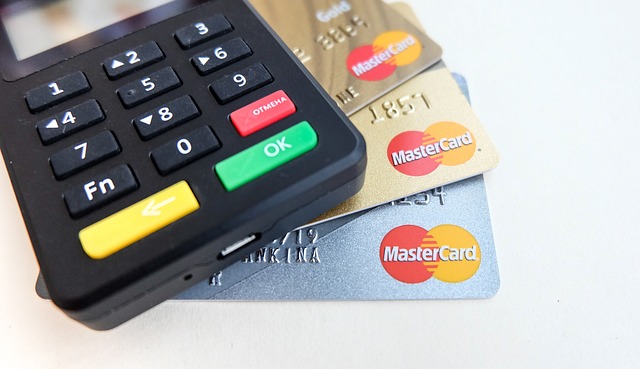As we've previously mentioned when to register for VAT, we're now going to discuss the principal rules for claiming VAT on business expenses.

Overview
If you're a VAT registered business you'll most likely charge your clients/customers VAT for your goods or services. Furthermore, you'll also suffer VAT on many of your expenses.
Therefore it is important to understand the rules for claiming VAT on business expenses so you can be both tax efficient and remain compliant with HMRC.
When a VAT-registered business purchases goods or services, the VAT paid on these purchases is known as 'input tax'. In many cases, businesses can reclaim this input tax, provided certain conditions are met. This process is known as VAT recovery.
The ability to recover VAT on business expenses not only reduces the overall cost of your expenses it also enhances your cash flow efficiency. However, it's important to establish what is regarded as a recoverable VAT expense and ensure that all the necessary conditions are met.
Conditions for claiming VAT on business expenses
HMRC sets strict guidelines and criteria for VAT recovery, and it's imperative for businesses to adhere to these to avoid complications or denials of their VAT claims. Moreover, not all input VAT can be recovered and recovery is not automatic. Input VAT must be reclaimed as part of the VAT return.
To ensure a successful VAT claim on business expenditure, the principal conditions that need to be met are as follows:
What are valid business expenses?
Understanding what expenses qualify for VAT recovery is crucial for businesses. Also not all expenses incurred by a business will be eligible for a VAT reclaim. Here are some key types of expenses that do not qualify as a general rule:
The importance of maintaining proper business records
To successfully reclaim VAT on business expenses, maintaining proper documentation is essential. Therefore, obtaining a valid VAT invoice is the starting point. Moreover, this invoice should include the supplier's VAT number, the date of supply, a description of goods or services, and the VAT amount charged. HMRC have set out the specific criteria required here.
Businesses are required to keep their VAT invoices and other VAT records for at least six years. So these records should be readily accessible in case HMRC requests to see them, either for routine checks or audits.
With the advent of Making Tax Digital (MTD) for VAT, keeping digital records has become more important. Therefore businesses must ensure that their digital records meet HMRC’s requirements and are capable of submitting VAT returns digitally.
Avoiding pitfalls and compliance issues in VAT recovery
Navigating the VAT recovery process can prove challenging. So awareness of common pitfalls and compliance issues is key for a successful claim VAT on business expenses. Also this will also avoid penalties. We set out below some common problem areas below:
Incorrect VAT Rate Application
One of the most common mistakes is applying the wrong VAT rate. The UK has different VAT rates (standard, reduced, zero-rated), and applying the incorrect rate can lead to miscalculations in VAT recovery. Therefore, It's crucial to understand which rate applies to each type of expense.
Claiming VAT on Non-Eligible Expenses
Businesses sometimes incorrectly claim VAT on expenses that are not eligible for recovery - see above.
Incomplete or Incorrect Documentation
Failing to maintain proper VAT invoices or keeping incomplete records can lead to denied VAT claims. Therefore it's important to ensure that all VAT invoices are complete, accurate, and stored securely for the required period
Not Accounting for Personal Use
When an expense has both a business and personal element, only the business proportion of the VAT can be reclaimed. So businesses must accurately apportion VAT between business and personal use. This is equally important in cases like utility bills for premises used for both purposes.
Late Filing and Errors in VAT Returns
Late filing of VAT returns or errors in your VAT returns can result in penalties and interest being charged. Ensuring timely and accurate VAT return submissions is crucial for compliance.
Overlooking Partial Exemption Rules
Businesses that make both taxable and exempt supplies may be subject to partial exemption rules. These rules can complicate the VAT recovery process, and failing to apply them correctly can lead to errors in VAT claims.
Neglecting Changes in Legislation
VAT legislation is subject to change, and you must stay informed about any updates or changes in the law that could affect their VAT recovery.
Misunderstanding the Capital Goods Scheme
The Capital Goods Scheme affects the VAT recovery on high-value capital assets. Misunderstanding the rules of this scheme can lead to incorrect VAT recovery over the adjustment period.
Summary
If you're vigilant about the rules, common pitfalls and compliance issues, you can avoid any issues arising in the VAT recovery process. As a result you'll ensure you reclaim the correct amount of VAT and remain compliant with HMRC regulations.
For more useful information, check out our Ebooks here.
And if you'd like to know how we can help you with all of this, or with anything else, feel free to give us a call on 01202 048696 or email us at [email protected].
Alternatively, please feel free to complete our Business Questionnaire here.
